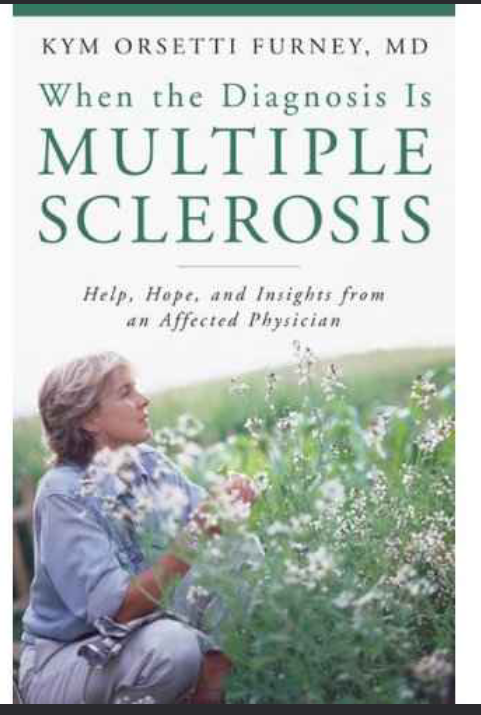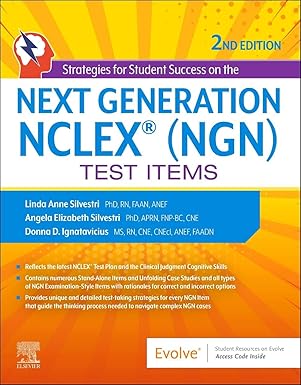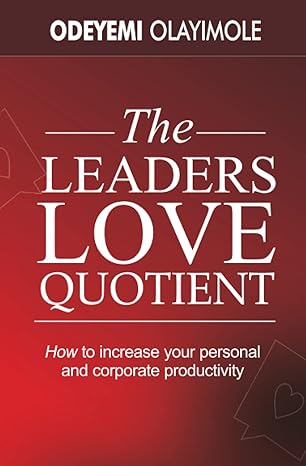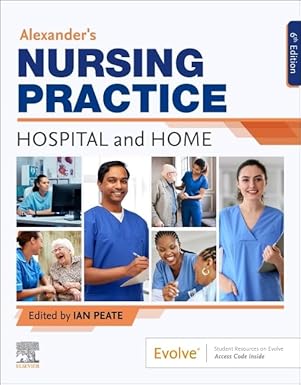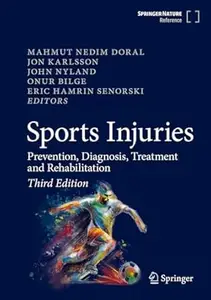There are countless different symptoms of multiple sclerosis. Therefore, no two individuals will have exactly the same physical or emotional experiences. I share the account of my own diagnosis because hearing the stories of others’ diagnoses was so helpful to me when I was newly diagnosed. Listening to others’ stories made me feel as if maybe I could actually survive as a member of this club. Again, not a club that I would have chosen to sign up for, but a club that is full of understanding and support. The stories of others comforted me and made me feel less alone. I share with you my entire diagnosis story, although somewhat long, because this is frequently the reality of being diagnosed with MS. It was six years from the time that my first symptoms appeared until I knew with certainty that I had MS. I was twenty-seven years old, engaged to be married, and working long hours as a resident physician when I began to experience pain in my left eye. It felt as though I had pulled a muscle in my eye, but as a physician, I knew that was unlikely. I assumed the pain would be gone in a few days. Instead, the pain increased. I began to have difficulty driving because of the pain brought on by looking to the extreme left or right. I decided to call a resident physician whom I knew in the Department of Ophthalmology, and he suggested that I be evaluated in clinic sometime that week. Two days later, I went for my appointment, where a different resident physician asked a lot of excellent questions and did a thorough eye exam. He could not see anything wrong with my eye but recommended “monitoring” the symptoms so that I could let him know if anything changed or got worse. As is the case for so many patients in the early stages of MS before a diagnosis has been made, I left the appointment feeling somewhat foolish. I felt that I had wasted my own limited time as well as the time of the resident ophthalmologist. I attributed my symptoms to the stress of a busy inpatient rotation where I was caring for cancer patients in addition to the stress of preparing for a wedding. I left the office and returned to the hospital to tend to my patients who were truly sick as they battled various cancers. I again dismissed the eye pain since I now knew there was “nothing wrong.” A few days later, I was shopping for bridesmaid dresses when I began to sense that something was not quite right with my vision. I stopped in the middle of the store, looked straight ahead, and realized that I could not see the left side of the room. My stomach turned, and panic slowly set in. Now I was scared. While I still did not have a definite diagnosis in mind, I knew something had to be very wrong. The resident physician a few days earlier Being Diagnosed 3 had asked, “Are you sure there are no changes or problems with your vision?” Well now there were problems. The thought of potentially losing my vision altogether nearly paralyzed me. I paged the resident physician whom I had seen in the office, and I described my partial visual loss on the left, trying to sound calm and professional. His tone was now quite serious. Gone was his easy-going demeanor of a few days prior. He would see me with his supervising physician first thing in the morning. His level of concern only escalated my own fear. I did not ask him what he thought was wrong, and he, of course, was not going to tell me anything over the phone. At that point in my Internal Medicine training, I had never seen a patient with optic neuritis, the diagnosis I was soon to have. Therefore, I certainly did not know that optic neuritis can be an initial symptom of MS. So while I had trouble falling asleep the night before that appointment, I still did not know what was coming. The next morning, within minutes of examining my eyes and hearing my symptoms, the supervising neuro-ophthalmologist sat down with me and told me I had “optic neuritis.” In a manner that was much too straightforward for me as I was suddenly transforming from physician to patient, he told me that optic neuritis could be associated with multiple sclerosis. However, he went on, there were many instances when it occurred without having MS. I learned that I would need an MRI scan of my brain to visualize my optic nerves and to see if there was any indication of MS. As for my visual symptoms, I would probably recover most of my visual function. Oh, and if the MRI confirmed the optic neuritis, I would need to receive three days of high-dose intravenous steroids, starting as soon as possible, to help with my visual symptoms and perhaps to prevent the future onset of multiple sclerosis. I choked back the tears with my stomach in knots as I tried to maintain my composure as the professional physician that I thought I was supposed to be. We were still sitting in the relative darkness of the eye examination room as the supervising physician provided this onslaught of information for me. To this day, what I remember most about that morning was that it all felt very dark. The hours that followed that appointment are somewhat of a blur. I know that I called my fianc ́e first to tell him. He also did not know much about optic neuritis, so his initial response was very calm and supportive. I then had to arrange for coverage at work so that I could get my MRI done and begin receiving intravenous steroids. That night, my fianc ́e and I sat at my kitchen table, flipping through the pages of a medical textbook, trying to educate ourselves about this diagnosis of optic neuritis. Reading together, we came to the page where it said between 30 and 70 percent of patients with optic neuritis would go on to develop multiple sclerosis. All the strength that I had been mustering up was gone. “30 to 70 percent.” Multiple sclerosis might truly be in my future. I started to weep. My fianc ́e held me and wept with me. The MRI was done within twenty-four hours, and there was wonderful news to be had. The scan did not show any definite signs of MS. However, both the 4 When the Diagnosis Is Multiple Sclerosis left and right optic nerves were involved, even though I only had symptoms on the left side. The following morning, instead of putting on my white doctor’s coat, I found myself feeling like a foreigner in uncertain territory as I lay on a stretcher in a hospital gown, having an IV catheter poked into my arm. Once the IV was in place, explanations followed from a nurse about what to expect as the steroids were infusing—perhaps a metallic taste in my mouth, perhaps some heat and flushing. My fianc ́e by my side and holding my hand, I was glad to be doing the right thing for my health. The tears of forty-eight hours earlier were gone, and I was back in my “pull-it-together Kym” mindset. Denial had already begun to settle in as I protected myself from my worst fears. My MRI showed no signs of multiple sclerosis. I did not have MS, and I was not planning on getting it. The optic neuritis had just managed to sneak in during a stressful time of my life. Thirteen years later, as I look back to my episode of optic neuritis, perhaps I was fortunate in that it gave me a chance to contemplate the possibility of having MS without having to receive the actual diagnosis. Unlike the experience of many other MS patients, I was also fortunate in that it was only days from my initial eye symptoms until I had some definite diagnosis. I did not have to endure months or years of different doctors and different symptoms, wondering what was wrong with me or if I was just crazy. For me, my vision recovered nearly completely within weeks of treatment, and life went on. And on it went quite well. I got married, finished my residency training, began working as an Internal Medicine physician and gave birth to a beautiful little girl. I was happy and busy, so I rarely thought about the possibility of MS. A neurologist had once said to me that if I made it five years from my initial optic neuritis diagnosis without any new symptoms, I would probably never have MS. Even though I spent little time thinking about the possibility, I do distinctly remember making a mental note to myself in April 1999 when I was seven months pregnant with my first child, that those five years had passed without any apparent symptoms. One morning, fifteen months after the birth of my daughter, I was super- vising resident physicians in a very busy outpatient clinic. I began to notice that I felt lightheaded whenever I stood up from the discussion table to go to a patient’s room. Within hours, this dizzy sensation had become persistent, and I had to put my head down on the table just to tolerate the sensation. I excused myself from the supervising room and asked a nurse to check my blood pres- sure. My pressure was surprisingly low and my heart rate was abnormally fast. I began to think of all the things that could be causing my symptoms—blood loss, dehydration, a thyroid problem, perhaps a second pregnancy. However, I had no reason to have any of those problems and had not yet made the decision to have a second child. Despite having had optic neuritis six years earlier, the diagnosis of multiple sclerosis did not even cross my mind that day. Denial can be surprisingly strong. Being a physician admittedly allows for rapid access to other physicians. Within three days, I had seen a neurologist and a cardiologist. Both of these Being Diagnosed 5 very intelligent doctors thought I had a form of “postural orthostatic hypoten- sion” that can sometimes be seen in young women without a definite cause. The neurologist did not think I needed to worry about MS, and an MRI was not ordered. Two nights later, I got up to use the bathroom at three o’clock in the morning. On my way back to bed, I was struck by profound dizziness and spinning. I fell to the floor. It felt as though the floor were a magnet, pulling my head back down and preventing me from getting back up. I called my husband’s name. His strong arms carried me back to bed, where everything in the room continued to spin even though I was lying perfectly still. Did I have a brain tumor, was I bleeding inside my head? Although terrified, I still did not realize that a diagnosis of multiple sclerosis was twenty-four hours away. Needless to say, this spinning episode greatly concerned the neurologist I had seen a few days prior. That evening, I found myself back inside the tight space of the MRI machine. With my head wedged tightly between foam blocks and cage-like bars inches from my nose, I thought of my daughter sleeping soundly in her crib at home. If this were to be MS, would I be her soccer coach someday, would I walk down the aisle at her wedding? A hot tear trickled from the outer corner of my eye, flowing down my cheek and onto my neck. The loud, clanking sounds of the MRI scanner continued. I prayed as my heart raced. I tried to see my own patients in the office the following day to keep my mind off the fact that I was anxiously awaiting the results of the MRI scan. The day slowly crept by, and at 4:30 P.M. , I still had not received a call from the neurologist. My husband and I could not wait any longer. As I went in to see my last patient, my husband went over to the radiology department to find the results. I had just stepped out of my patient’s room to get some information sheets when he returned. The look on his face told me the news, but I still had to hear the words from him to be sure. Yes, it was MS. Queasiness filled my stomach as I felt the walls closing in. Somehow, I kept my composure long enough to return to my patient’s room to give her the necessary papers and answer a few more questions. My husband was waiting for me as I came out. We grabbed our coats and walked in silence ever so quickly to our car, as if we were trying to escape an evil that was chasing us. As soon as we were both inside the car and I slammed the door shut, the sobs came uncontrollably in a way I had never experienced before. My husband held my shaking body.
چکیده فارسی
بیماری علائم مختلف مولتیپل اسکلروزیس وجود دارد. بنابراین، هیچ دو فردی دقیقاً تجربیات فیزیکی یا عاطفی مشابهی نخواهند داشت. من گزارش تشخیص خودم را به اشتراک میگذارم، زیرا شنیدن داستانهای تشخیصهای دیگران برای من بسیار مفید بود، وقتی تازه تشخیص داده شدم. گوش دادن به داستان های دیگران به من احساس می کرد که شاید بتوانم به عنوان عضوی از این باشگاه زنده بمانم. باز هم، نه باشگاهی که برای ثبت نام در آن انتخاب می کردم، بلکه باشگاهی پر از درک و حمایت است. داستان های دیگران به من آرامش می داد و باعث می شد کمتر احساس تنهایی کنم. من تمام داستان تشخیص خود را با شما به اشتراک می گذارم، اگرچه تا حدودی طولانی است، زیرا این واقعیت غالباً تشخیص ام اس است. شش سال از زمانی که اولین علائم من ظاهر شد تا زمانی که با قطعیت متوجه شدم که به ام اس مبتلا هستم، گذشت. من بیست و هفت ساله بودم، نامزد بودم و ساعتهای زیادی به عنوان پزشک مقیم کار میکردم که درد در چشم چپم شروع شد. انگار عضله چشمم را کشیده ام، اما به عنوان یک پزشک، می دانستم که بعید است. حدس میزدم درد چند روز دیگر از بین میرود. در عوض، درد افزایش یافت. من به دلیل دردی که با نگاه کردن به سمت چپ یا راست به وجود میآمد، در رانندگی با مشکل مواجه شدم. تصمیم گرفتم با یک پزشک رزیدنت که او را می شناختم در بخش چشم پزشکی تماس بگیرم و او پیشنهاد کرد که در همان هفته در کلینیک معاینه شوم. دو روز بعد، برای قرار ملاقاتم رفتم، جایی که یک پزشک مقیم دیگر سوالات بسیار عالی پرسید و یک معاینه کامل چشم انجام داد. او هیچ مشکلی را در چشم من مشاهده نکرد، اما توصیه کرد که علائم را "نظارت کنم" تا در صورت تغییر یا بدتر شدن چیزی به او اطلاع دهم. همانطور که در مورد بسیاری از بیماران در مراحل اولیه ام اس قبل از تشخیص، قرار ملاقات را تا حدودی احمقانه ترک کردم. احساس کردم وقت محدود خودم و همچنین وقت چشم پزشک رزیدنت را تلف کرده ام. من علائمم را به استرس ناشی از چرخش بستری شلوغی که در آن از بیماران سرطانی مراقبت می کردم، علاوه بر استرس آماده شدن برای عروسی، نسبت داد. من مطب را ترک کردم و به بیمارستان برگشتم تا از بیمارانم که واقعاً بیمار بودند در حالی که با سرطان های مختلف مبارزه می کردند مراقبت کنم. من دوباره درد چشم را نادیده گرفتم زیرا اکنون می دانستم "هیچ چیز اشتباهی" وجود ندارد. چند روز بعد، در حال خرید لباس ساقدوش بودم که احساس کردم چیزی در دید من درست نیست. وسط مغازه ایستادم، مستقیم به جلو نگاه کردم و متوجه شدم که سمت چپ اتاق را نمی بینم. شکمم چرخید و به آرامی وحشت شروع شد. حالا ترسیده بودم. در حالی که هنوز تشخیص قطعی در ذهن نداشتم، میدانستم که چیزی باید بسیار اشتباه باشد. پزشک مقیم چند روز قبل از Being Diagnosed 3 پرسیده بود، "آیا مطمئن هستید که هیچ تغییر یا مشکلی در بینایی شما وجود ندارد؟" خوب حالا مشکلاتی وجود داشت. فکر از دست دادن بالقوه بینایی ام تقریباً مرا فلج کرد. من پزشک مقیمی را که در مطب دیده بودم صفحه زدم و از دست دادن جزئی بینایی خود را در سمت چپ شرح دادم و سعی کردم آرام و حرفه ای به نظر برسم. لحنش الان کاملا جدی بود. رفتار راحت چند روز قبلش از بین رفت. او اول صبح مرا با پزشک ناظرش می دید. سطح نگرانی او فقط ترس من را تشدید کرد. من از او نپرسیدم که به نظر او اشتباه است و او البته قرار نبود تلفنی چیزی به من بگوید. در آن مرحله از آموزش پزشکی داخلی، هرگز بیمار مبتلا به نوریت بینایی را ندیده بودم، تشخیصی که به زودی داشتم. بنابراین، مطمئناً نمی دانستم که نوریت بینایی می تواند از علائم اولیه ام اس باشد. بنابراین در حالی که شب قبل از آن قرار برای به خواب رفتن مشکل داشتم، هنوز نمی دانستم چه چیزی در راه است. صبح روز بعد، در عرض چند دقیقه پس از معاینه چشمهایم و شنیدن علائمم، متخصص مغز و اعصاب ناظر با من نشست و به من گفت که «نوریت بینایی» دارم. به روشی که برای من خیلی ساده بود، چون ناگهان از پزشک به بیمار تبدیل میشدم، او به من گفت که نوریت اپتیک میتواند با مولتیپل اسکلروزیس همراه باشد. با این حال، او ادامه داد، موارد زیادی وجود داشت که بدون ابتلا به ام اس رخ داد. فهمیدم که برای تجسم اعصاب بینایی و دیدن نشانه ای از ام اس به اسکن MRI از مغزم نیاز دارم. در مورد علائم بینایی من، احتمالاً بیشتر عملکرد بینایی خود را بازیابی می کنم. اوه، و اگر MRI نوریت بینایی را تایید می کرد، باید سه روز استروئیدهای داخل وریدی با دوز بالا دریافت کنم، که در اسرع وقت شروع شود تا به علائم بینایی ام کمک کند و شاید از شروع آتی ام اس جلوگیری کنم. در حالی که سعی می کردم خونسردی خود را به عنوان پزشک حرفه ای که فکر می کردم قرار است باشم، حفظ کنم، اشک هایم را با شکمم گره خوردم. ما هنوز در تاریکی نسبی اتاق معاینه چشم نشسته بودیم زیرا پزشک ناظر این هجوم اطلاعات را برای من فراهم کرد. تا به امروز، چیزی که بیشتر از آن صبح به یاد دارم این بود که همه چیز تاریک بود. ساعات بعد از آن قرار تا حدودی مبهم است. می دانم که اول به نامزدم زنگ زدم تا به او بگویم. او همچنین اطلاعات زیادی در مورد نوریت بینایی نداشت، بنابراین پاسخ اولیه او بسیار آرام و حمایت کننده بود. سپس مجبور شدم در محل کار خود را تحت پوشش قرار دهم تا بتوانم MRI خود را انجام دهم و شروع به دریافت استروئیدهای داخل وریدی کنم. آن شب، من و نامزدم پشت میز آشپزخانه ام نشسته بودیم و صفحات یک کتاب درسی پزشکی را ورق می زدیم و سعی می کردیم خودمان را در مورد تشخیص نوریت بینایی آگاه کنیم. با خواندن با هم، به صفحه ای رسیدیم که می گوید بین 30 تا 70 درصد از بیماران مبتلا به نوریت بینایی به مولتیپل اسکلروزیس مبتلا می شوند. تمام نیرویی که جمع کرده بودم از بین رفته بود. 30 تا 70 درصد مولتیپل اسکلروزیس ممکن است واقعاً در آینده من باشد. شروع کردم به گریه کردن نامزدم مرا در آغوش گرفت و با من گریست. MRI ظرف بیست و چهار ساعت انجام شد و خبرهای شگفت انگیزی در انتظار بود. اسکن هیچ نشانه قطعی از ام اس را نشان نداد. با این حال، هر دو اعصاب بینایی چپ و راست 4 وقتی تشخیص مولتیپل اسکلروزیس است درگیر بودند، حتی اگر من فقط علائم را در سمت چپ داشتم. صبح روز بعد، به جای پوشیدن کت سفید دکترم، در حالی که روی برانکارد با لباس بیمارستان دراز کشیده بودم، در حالی که یک کاتتر IV به بازویم زده بودم، احساس کردم که در قلمروی نامشخص یک خارجی هستم. هنگامی که IV در جای خود قرار گرفت، توضیحاتی از یک پرستار در مورد آنچه که باید انتظار داشته باشم در حین تزریق استروئیدها ارائه شد - شاید یک طعم فلزی در دهان من، شاید کمی گرما و گرگرفتگی. نامزدم کنارم بود و دستم را گرفته بود، خوشحال بودم که برای سلامتی کار درستی انجام میدهم. اشک های چهل و هشت ساعت قبل از آن ناپدید شده بودند و من به طرز فکر «با هم کیم بکش» برگشته بودم. انکار قبلاً شروع به حل کرده بود زیرا من از خودم در برابر بدترین ترس هایم محافظت می کردم. ام آر آی من هیچ نشانه ای از ام اس را نشان نداد. من ام اس نداشتم و قصد نداشتم به آن مبتلا شوم. نوریت اپتیک به تازگی توانسته بود در یک دوره پر استرس از زندگی من پنهان شود. سیزده سال بعد، در حالی که به دوره خود از نوریت بینایی نگاه می کنم، شاید خوش شانس بودم که این فرصت را به من داد تا بدون نیاز به تشخیص واقعی، به احتمال ابتلا به ام اس فکر کنم. بر خلاف تجربه بسیاری از بیماران ام اس، من همچنین خوش شانس بودم که تنها چند روز از علائم اولیه چشمی من تا تشخیص قطعی گذشته بود. مجبور نبودم ماهها یا سالها پزشکان مختلف و علائم مختلف را تحمل کنم، به این فکر کنم که چه بلایی سرم آمده یا دیوانهام. برای من، بینایی من در عرض چند هفته پس از درمان تقریباً به طور کامل بهبود یافت و زندگی ادامه یافت. و در آن بسیار خوب پیش رفت. ازدواج کردم، دوره رزیدنتی ام را تمام کردم، به عنوان پزشک داخلی شروع به کار کردم و یک دختر کوچک زیبا به دنیا آوردم. من خوشحال و مشغول بودم، بنابراین به ندرت به احتمال ام اس فکر می کردم. یک متخصص مغز و اعصاب یک بار به من گفته بود که اگر پنج سال از تشخیص اولیه نوریت بینایی خود را بدون هیچ علائم جدیدی انجام دهم، احتمالاً هرگز به ام اس مبتلا نخواهم شد. با وجود اینکه زمان کمی را صرف فکر کردن به این امکان کردم، به وضوح به یاد میآورم که در آوریل 1999، زمانی که اولین فرزندم را هفت ماهه باردار بودم، یادداشتی ذهنی برای خودم نوشتم که آن پنج سال بدون هیچ علامت آشکاری گذشت. یک روز صبح، پانزده ماه پس از تولد دخترم، من در یک کلینیک سرپایی بسیار شلوغ تحت نظر پزشکان مقیم بودم. متوجه شدم که هر وقت از روی میز بحث بلند می شدم تا به اتاق یک بیمار بروم احساس سبکی سرم می کرد. در عرض چند ساعت، این احساس سرگیجه دائمی شده بود و من مجبور شدم سرم را روی میز بگذارم تا آن احساس را تحمل کنم. من خودم را از اتاق سرپرست معاف کردم و از یک پرستار خواستم که فشار خونم را چک کند. فشارم به طرز شگفت آوری پایین بود و ضربان قلبم به طور غیر طبیعی سریع بود. شروع کردم به فکر کردن به همه چیزهایی که می تواند باعث علائم من شود - از دست دادن خون، کم آبی، مشکل تیروئید، شاید بارداری دوم. با این حال، دلیلی برای داشتن هیچ یک از آن مشکلات نداشتم و هنوز تصمیمی برای داشتن فرزند دوم نگرفته بودم. علیرغم اینکه شش سال قبل از آن به نوریت بینایی مبتلا بودم، تشخیص مولتیپل اسکلروزیس در آن روز حتی به ذهنم نرسید. انکار می تواند به طرز شگفت آوری قوی باشد. مسلماً پزشک بودن امکان دسترسی سریع به سایر پزشکان را فراهم می کند. در عرض سه روز به یک متخصص مغز و اعصاب و یک متخصص قلب مراجعه کردم. هر دوی این 5 پزشک بسیار باهوش فکر میکردند که من نوعی «افت فشار خون ارتواستاتیک وضعیتی» دارم که گاهی اوقات میتواند بدون علت مشخص در زنان جوان دیده شود. متخصص مغز و اعصاب فکر نمی کرد که من نیازی به نگرانی در مورد ام اس داشته باشم و ام آر آی هم دستور داده نشد. دو شب بعد، ساعت سه صبح بیدار شدم تا از دستشویی استفاده کنم. در راه بازگشت به رختخواب، دچار سرگیجه و چرخیدن شدید شدم. روی زمین افتادم. انگار زمین آهنربایی است، سرم را به سمت پایین می کشد و مانع از بلند شدنم می شود. اسم شوهرم را صدا زدم بازوهای قوی او مرا به رختخواب برگرداند، جایی که همه چیز در اتاق همچنان می چرخید، حتی اگر من کاملاً بی حرکت دراز کشیده بودم. آیا تومور مغزی داشتم، آیا از داخل سرم خونریزی داشتم؟ با وجود وحشت، هنوز متوجه نشدم که تشخیص مولتیپل اسکلروزیس بیست و چهار ساعت مانده است. نیازی به گفتن نیست، این قسمت چرخشی به شدت نگران متخصص مغز و اعصاب بود که چند روز قبل دیده بودم. آن شب، خودم را در فضای تنگ دستگاه MRI دیدم. در حالی که سرم محکم بین بلوکهای فوم و میلههای قفسمانند چند سانتیمتر از بینیام فرو رفته بود، به دخترم فکر کردم که در گهوارهاش در خانه به راحتی میخوابد. اگر قرار بود این بیماری ام اس باشد، آیا روزی مربی فوتبال او می شدم، آیا در مراسم عروسی او از راهرو عبور می کردم؟ اشک داغی از گوشه بیرونی چشمم چکید و روی گونه ام سرازیر شد و روی گردنم ریخت. صداهای بلند و هق هق اسکنر MRI همچنان ادامه داشت. در حالی که قلبم تند می زد دعا کردم. سعی کردم روز بعد بیماران خود را در مطب ببینم تا ذهنم را از این واقعیت دور نگه دارم که مشتاقانه منتظر نتایج اسکن MRI بودم. روز به آرامی گذشت و در ساعت 4:30 بعد از ظهر. ، هنوز از متخصص مغز و اعصاب تماسی دریافت نکرده بودم. من و شوهرم نمی توانستیم بیشتر از این صبر کنیم. وقتی برای دیدن آخرین بیمارم رفتم، شوهرم برای یافتن نتایج به بخش رادیولوژی رفت. من تازه از اتاق بیمارم بیرون آمده بودم تا برگه های اطلاعاتی را دریافت کنم که او برگشت. قیافهاش این خبر را به من میداد، اما برای اطمینان هنوز باید این حرفها را از او میشنیدم. بله ام اس بود بی حالی شکمم را پر کرد که احساس کردم دیوارها به داخل بسته می شوند. به نوعی، آنقدر خونسردی خود را حفظ کردم تا به اتاق بیمارم برگردم تا مدارک لازم را به او بدهم و به چند سوال دیگر پاسخ دهم. وقتی اومدم بیرون شوهرم منتظرم بود. ما کت هایمان را برداشتیم و در سکوت خیلی سریع به سمت ماشینمان رفتیم، انگار می خواستیم از شری که ما را تعقیب می کرد فرار کنیم. به محض اینکه هر دو داخل ماشین بودیم و در را محکم بستم، هق هق گریه ها به شکلی بی اختیار آمد که تا به حال تجربه نکرده بودم. شوهرم بدن لرزان مرا نگه داشت.
ادامه ...
بستن ...
7 Having Children The decision to have children is one of the most intensely personal decisions that a couple or individual will make during a lifetime. Your decision to be a parent incorporates countless different factors, including your own childhood experience, personal values, religious beliefs, career plans, finances, and long- term vision of your life. The diagnosis of multiple sclerosis has the potential to add another layer of complexity to that decision-making process. For some, a life without children cannot be imagined, and there will not be much to con- template. Others may desire more information as they work their way through what they consider to be a difficult decision. For either group, learning about existing data from the medical community regarding the issues of pregnancy and parenting with MS can provide better understanding and alleviate po- tential concerns. Admittedly, much of this chapter speaks to women with MS who are contemplating pregnancy. But if you are a man living with MS and considering a future with children, there are sections of this chapter that speak to you as well. “SO WHEN WILL YOU HAVE A BABY ?” Approximately three months after my diagnosis, I was attending a family event with my husband and nineteen-month-old daughter. During the visit, a family member made a comment about when my daughter might have a new little brother or sister. While this was an innocent comment without any harmful intentions, I remember feeling so angry. I had just been diagnosed with multiple sclerosis. I was working and had a toddler. Did she not realize that I had enough on my plate at the time? Maybe there would be no more children. It was not that person’s business, and I felt angry that she had caused me to think about it. The truth is that I was still feeling very sorry for myself at that point. I was also in a selfish mindset. I was afraid of making anything worse. While I did Having Children 49 I would rather be living on this planet with MS than not be here at all. I would hope that my children would feel the same way. If you do have several family members with MS, a consultation with a genetic counselor may be very helpful. A counselor may be able to provide additional guidance regarding risk for MS in your children. Currently, testing for genetic susceptibility to MS is not being done, but that may change in the near future. However, a genetic counselor would look for any inheritance patterns in your own family and apply what we currently know about the genetics of MS to your particular situation. WILL I BE ABLE TO ADEQUATELY CARE FOR M Y CHILDREN? This is where it would be particularly helpful to have that magic crystal ball to predict our future. If we could be sure that our level of disability would be minimal over the next fifteen years, our worries about being able to take care of our children would obviously be much less. For those with a spouse or significant other in your life, it is crucial to have an open discussion with that person regarding what his or her role in child rearing will be. Even in the absence of MS, it is very helpful for couples to plan ahead regarding who will be doing the child care and how that will fit into your work and home lifestyles. When one partner does have MS and you discuss the “what ifs” down the road, it is important for the partner without MS to understand that he or she may have to take on greater child care responsibilities at some point if your health status were to change. While these conversations are important to have with your partner, I per- sonally believe that you can never anticipate and plan for every future event in your life, whether you live with MS or not. The majority of couples choosing to have children know that there are never any guarantees for the health or welfare of either parent. Once I had been diagnosed with MS, my husband and I knew that we could not predict what the future held for my health. Yet, we knew that we were committed to each other and any children we might have. We would tackle the various “bumps in the road” as they emerged over time. If you are already living with disability from your MS, then some additional planning for the specific challenges you may face with a new baby will likely be needed. If you are uncertain where to turn for such assistance, an occupational therapist may be a good place to start for evaluation of your specific needs as you care for an infant. Of course, the infant stage is only one of many stages. Future, first-time parents tend to focus primarily on the baby that will be arriving. However, as you anticipate some of your own needs, keep in mind that your child is going to pass through many different stages during the first five years of his life. He will transform from a highly dependent infant with many physical needs to a physically independent five-year-old with many emotional needs. Therefore, a particular disability may not always have the 52 When the Diagnosis Is Multiple Sclerosis concerns about relapse, I hardly gave it any thought during those nine months. And I must admit, I definitely enjoyed taking a break from the injections. When Should I Restart My Medications after I Deliver? The answer to this question depends on whether or not you are planning to breastfeed. It is not clear how much of the disease-modifying drugs enter breast milk, and current recommendations are not to take them while breast- feeding. From the standpoint of your child’s health, breast milk is clearly the best nutrition you can provide during those early months. However, it also important for the well-being of a child to have a healthy mother. The question therefore becomes whether you remain off disease-modifying medication dur- ing the first few months postpartum when relapse rates are known to increase in order to provide optimal nutrition for your child. Many women have very strong feelings about breastfeeding, independent of the potential issue of taking medication while nursing. If you have always believed that breastfeeding is the best way to go, then staying off medication will be an easier choice for you to make. I struggled quite a bit with the best course of action to take since my preference was for my daughter to have the nutrition of breast milk. Unfortunately, I had a very difficult time breastfeeding my first child and was only able to nurse for three to four months. While I very much wanted my second child to receive every bit of nutrition that her big sister had, I also knew that breastfeeding had not been easy for me. Ultimately, I decided to breastfeed my second child for one month so that she would receive many of the good antibodies that come with the earlier milk. I then planned to get back on my medication as soon as I stopped breastfeeding. Of course, I had a much easier time breastfeeding my second child, but I stuck with my one-month plan nonetheless! Currently, we do not have any clear-cut answers to give women as to what they should do about timing for reinitiation of disease-modifying medication versus duration of breastfeeding. Women in the PRIMS study who breastfed their children did not have a higher rate of relapse than women who did not. You should gather the opinions of both your neurologist and your future pe- diatrician and weigh them in the context of your own feelings. If you place a very high priority on breastfeeding, you should not feel compelled to abandon it. Choosing to breastfeed and to stay off medications certainly does not guar- antee a relapse. On the other hand, if you choose not to breastfeed, getting back on medications after delivery would be a sensible optio
ادامه ...
بستن ...
